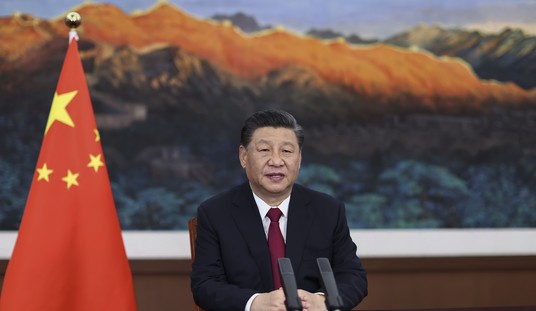
U.S. Undersecretary of State John Bolton delivers a speech at the American Center in Tokyo Wednesday, Oct. 27, 2004. Bolton named North Korea, Iran and Syria among the worst proliferators of weapons of mass destruction, as he called for shipments to the countries and terrorist groups to be monitored more closely. (AP Photo/Itsuo Inouye)
There are a lot of bad ideas that just won’t go away. And the Trump Administration is recycling the idea of using troops from other nations to carry out American foreign policy:
The Trump administration is seeking to assemble an Arab force to replace the U.S. military contingent in Syria and help stabilize the northeastern part of the country after the defeat of Islamic State, U.S. officials said.
John Bolton, President Donald Trump’s new national security adviser, recently called Abbas Kamel, Egypt’s acting intelligence chief, to see if Cairo would contribute to the effort, officials said.
The initiative comes as the administration has asked Saudi Arabia, Qatar and the United Arab Emirates to contribute billions of dollars to help restore northern Syria. It wants Arab nations to send troops as well, officials said.
On paper, this looks like a no-brainer. The Saudis and UAE have a lot of cash. Egypt has a lot of Egyptians. The whole lot of them understand the culture and language in Syria. None of them are fond of Iran. In fact, all of them are sort of afraid of Iran’s designs on the region. This is a marriage made in heaven.
The problems mount, though.
There is really no evidence that Egypt is any more eager to send Egyptians to Syria than Trump is to send Americans. I’m not criticizing this, to the contrary, I find a reluctance on the part of political leaders to send their armies into war for not-terribly-clear reasons to be refreshing. In fact, Egypt seems to be saying “no, thanks.”
#Egypt’s response to #Trump’s desire to see it deploy to protect ne #Syria from #ISIS (& #Assad/#Iran):
– “Egypt's Armed Forces are not mercenaries… Egypt is adopting a strategy based on supporting the unity of Syria's territories & its national army.”https://t.co/tLnko4O0id pic.twitter.com/hAIJbrf4BI
— Charles Lister (@Charles_Lister) April 17, 2018
If we were able to cobble this coalition together the odds of it increasing, rather than tamping down, the violence is pretty great. An Egyptian commander is not going to operate with a few lawyers telling him what targets he can strike and what kind of weapon he can use. The answers are “any I want” and “big.” If you want to see how a relatively civilized Arab military coalition operates, check out the Saudis and UAE in Yemen. Then tell me you want Saudis, Egyptians, and heaven knows what else operating in densely populated areas of Syria in a very ambiguous tactical situation. I’m sure “kill them all and let God sort them out,” or “Novit enim Dominus qui sunt eius” has a fairly direct analog in Arabic.
The training level of any Arab force is going to guarantee that they have a very high casualty rate. None of the armies in the Arab world, except possibly parts of the Jordanian Army, are terribly competent. There are lots of cultural reasons for it and there are lots of resource reasons.
The basic question of “okay, what are we doing here” remains. If I’m unsure on what we’re doing in Syria where I can see we have geo-strategic interests, I can’t imagine the Egyptians or Saudis trying to get involved.
In the words of Elliot Abrams, quoted in Axios:
“Egypt has resisted sending troops to Yemen despite significant Saudi pressure (and the promise of rewards) in recent years. This is likely because the generals know their troops are not well prepared for such duty and could suffer casualties that would be highly unpopular at home. For the same reasons I don’t think they will send their troops to Syria. More generally, any useful Arab force would have to be led by the United States and our soldiers, not be a substitute for us. They could at best be force multipliers.”
I think President Trump’s instincts to get out of Syria are correct. I’ve never been sure that fighting ISIS was our best play in such a target-rich environment. The “rebels” we’re supporting don’t seem to be all that different in most respects from al Qaeda. I’m not sure that creating an independent Kurdistan is a great idea and I’m really sure that stoking Kurdish nationalism and then walking away is a not something we can justify doing. This, in my view, is a “go big or go home” situation. I can get behind either. What I can’t get behind is half-measures or, worse, half-measures that will create more problems for us than it solves.














Join the conversation as a VIP Member